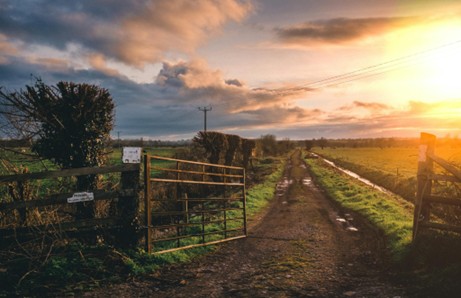Sustainability is reshaping property markets, transforming farm facilities into valuable assets rather than merely ethical investments. Buyers desire farms that strike a balance between productivity and sustainability, driving demand for green technology-driven farms and regenerative practices.
For sellers, investing in sustainability is not only about reducing carbon footprints. It’s about maximizing resale potential. Below are three sustainable elements that increase property value, reduce long-term costs, and position farms as forward-thinking investments in competitive markets.
1. Incorporation of Renewable Energy
Modern buyers view renewable energy systems as value-adding improvements. Farms outfitted with solar panels and biogas digesters can operate independently of the grid, reducing their utility bills and promoting energy independence. Solar pumps for irrigation, for instance, provide a steady water supply in the event of an outage. Such a guarantee is extremely valuable in places with harsh weather conditions.
In addition to the environmental benefits of sustainability, green energy solutions also have cost-saving implications. The government supports their use with tax credits and grant incentives. Their operational efficiency and long-term savings attract buyers while also appealing to those interested in generating revenue streams from carbon credits.
They signal operational efficiency, making properties stand out in listings and justifying premium pricing. These systems also align with global sustainability trends. This makes them desirable to investors wishing to future-proof their assets while remaining environmentally conscious. For example, solar array-integrated farms gain relatively more attention from customers who want to capitalize on both short-term savings and long-term energy security.
2. Smart Water Management
Drought and growing environmental regulations have made efficient water systems a priority for farm buyers. Drip irrigation, rain cisterns, and sensors that monitor soil moisture all play a critical role in enhancing efficiency and conserving local aquifers. Permeable pavers on high-volume roads reduce runoff. This benefits the surrounding ecosystem while also providing a marketing incentive for eco-conscious buyers.
Florida and other states with sandy soil and abundant rainfall make properties with intelligent water management systems particularly attractive to homeowners seeking efficient irrigation solutions. For example, farms in Florida for sale that feature subsurface drip irrigation (SDI) systems actively attract sustainable-minded buyers due to their efficient water management capabilities and improved crop production.
Wastewater treatment wetlands and plants offer dual benefits, as they transform previously drained land into attractive areas while also improving environmental quality. These water-saving features help reduce operating costs and enable properties to comply with stringent water regulations.
3. Regenerative Soil Practices
Healthy soil is the foundation of farm value. Regenerative agronomic practices, such as cover cropping, no-till production, and the application of compost tea, build soil organic matter and enhance carbon storage. Buyers understand that greater enriched and diverse soils on a farm result in reduced man-made inputs, leading to lower overheads and less environmental pressure.
Third-party certifications such as Regenerative Organic Certified or USDA organic offer a layer of marketability and authenticity. Rotational grazing and multispecies cover crop sellers are selling at premiums, and their buyers use soil health reports as a deciding factor.
Even small-scale agriculture is rewarded–urban micro-farms employing vermicompost systems tap into niche markets willing to participate in local food movements. By showing soil vigor through extensive testing and certification, sellers can market their farms as strong, low-risk propositions.
Endnote
Sustainability is no longer just a buzzword but a guide to optimizing farm value in a rapidly shifting market. Renewable energy, smart water systems, and regenerative soil techniques reduce operating costs and align with buyer values for resilience and sustainability. As climate stress increases, these attributes will become the primary differentiator between premium properties and the rest. For sellers, the message is clear–green investments today yield competitive advantages tomorrow, making your farm stand out when it’s time to sell.










